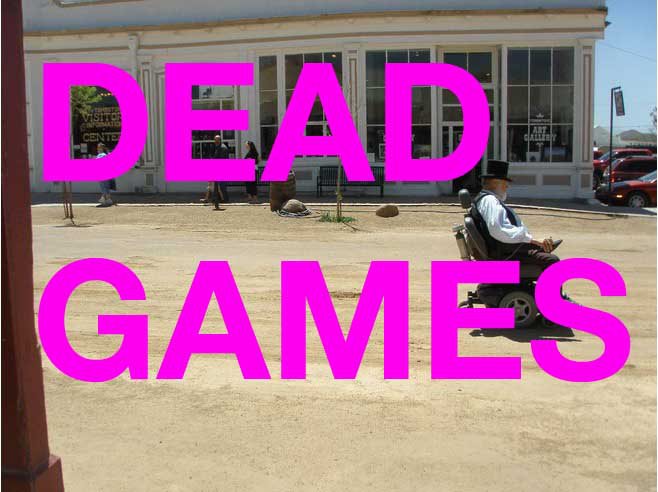Dead Games: Leaving Games Behind Undermines the Future
By MMMman 6 Comments

The notion of having a ‘backlog’ of games or, to use a phrase I dislike, a ‘pile of shame’ holds a number of connotations. Games that get left be the wayside often stay un-played, against our best intentions, and ultimately forgotten. These phrases instantly bring to the fore the sense that games are, on a whole, a temporal art form; that they can only be fully enjoyed within a very short period of time after their release. That once a game is no longer considered new that it is acceptable to distance oneself from it and discard it into the annals of history. It also infers that a game’s importance, albeit with a few exceptions, wanes significantly over time.
Games are very different to sculpture, painting, film or music in this sense. Because the advancing technology behind them is much more apparent, graphical fidelity aside, they can quickly appear outdated. Simple mechanics such as running and jumping can be easily rendered archaic through minor advances in design. For example; the early Tomb Raider games were lauded in their time on both game play and graphical levels. “Tomb Raider is the exploratory game you always wished you were playing” said Gamespot in 1996, while Gamespy described the original series as “a masterful balance of exploration, adventure and action, all set in an immensely colorful, exotic 3D world.” Both of these opinions have been coloured by time but this does not render them obsolete.
The original Tomb Raider was remade in 2007 with more modern mechanics. Basic movement was vastly improved through technology and highlighted the lack of precision and control inherent with the original game. I feel both, however, should be considered valid options to play. Each represents a certain period in gaming and reflects the limitations technology imposed at the time. Much like the 1998 remake of Psycho, Tomb Raider: Anniversary is as much an exercise in clinical re-creation as it is a fully formed game. Its reverence to the past is astonishing, its adherence to the original admirable. While Psycho, however, is a statement that any film can be remade and result in an almost identical product, Anniversary shows that remaking a game inherently brings with it massive changes.
While remaking a film shot-for-shot brings with it the inevitable change of cast, and in this case the introduction of colour, the overall aesthetic of both image and performance can be retained. Remaking a game, however, changes almost every aspect of it, as is the clearly intended result in this case. Anniversary, then, was less an act of creative curation and more one of re-imagination. It took a name and a template and re-packaged it for a modern era, essentially making the old new again. Anniversary is by no means the original, though, it is a completely different entity.
This I don’t feel is necessarily negative, though it does highlight the problem of games maintaining their relevance. It took almost forty years for Psycho to be remade, yet only ten for Tomb Raider. Technology will inevitably continue to improve, leading games to appear ‘old’ much more quickly than other art forms. Should this mean that ageing games are left to be forgotten or simply rehashed, overwriting the past? I think neither is a sustainable option.
Games are inevitably built, more so than any other popular medium, on iteration. Progress is inevitable throughout a technology-dependent medium, though it need not constrain the past. The mentality that older games, especially ones constrained by a definitive ‘generation’, become outdated through virtue of their graphics and mechanics needs to be addressed. The original Assassin’s Creed, for example, was blighted by its repetitive nature and generally bland storytelling, though paved the way for a vastly superior sequel. Should it be disregarded because of its shortcomings or forgotten because of its legacy? Neither.
Games are fascinating because of their fractured and intricate lineages. To forget the past of gaming is to disregard everything that has brought us to this moment in time. By leaving games un-played we lose all sense of the present, yet to leave the same games for too long we lose all sense of the past, something that has much further-reaching implications.
